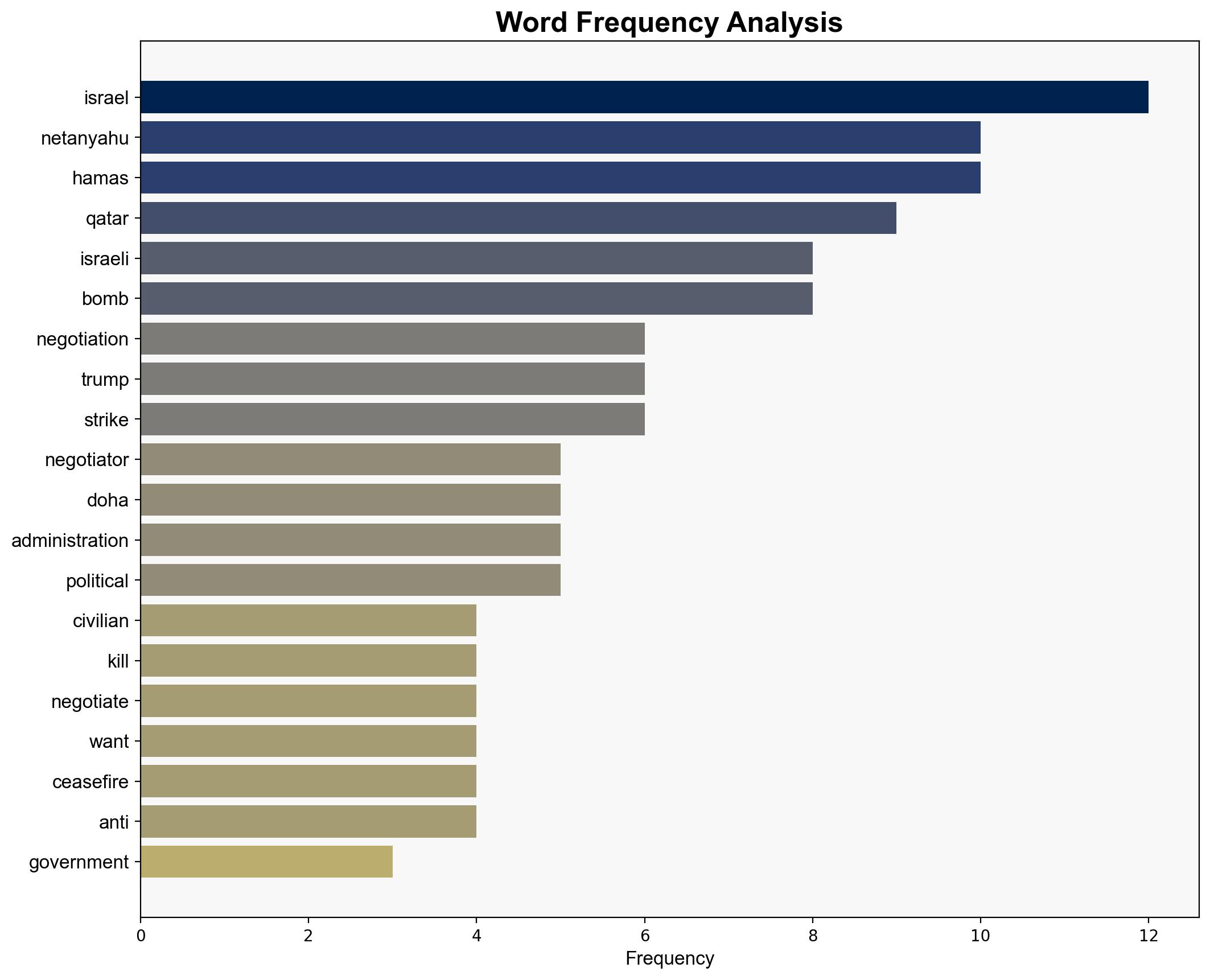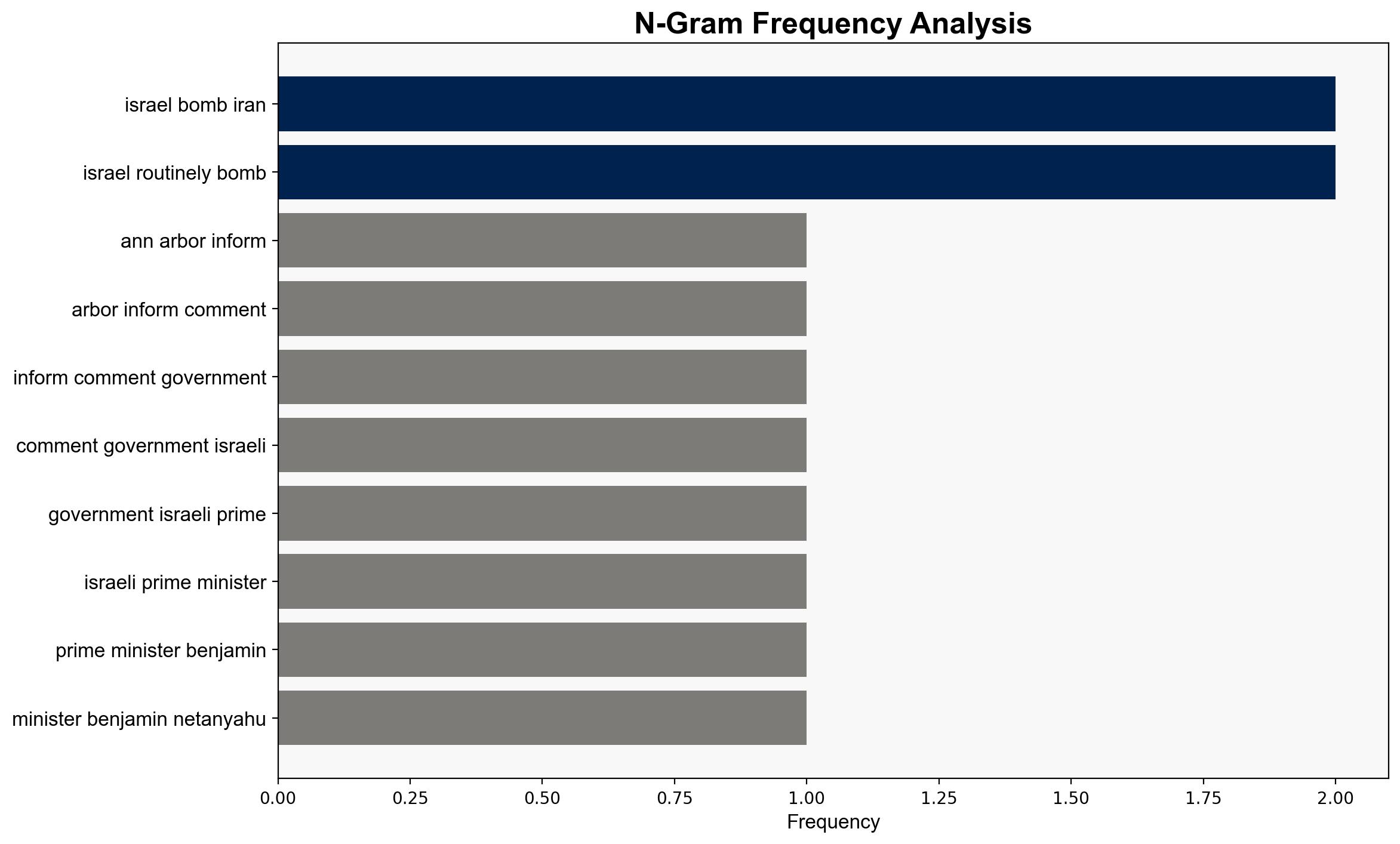Top 4 Reasons Netanyahu Bombed Negotiators Offices in Qatar – Juancole.com
Published on: 2025-09-10
Intelligence Report: Top 4 Reasons Netanyahu Bombed Negotiators Offices in Qatar – Juancole.com
1. BLUF (Bottom Line Up Front)
The most supported hypothesis is that the bombing of the negotiators’ offices in Qatar was a strategic move by Netanyahu to disrupt negotiations with Hamas and assert Israeli regional dominance. Confidence level: Moderate. Recommended action: Monitor Israeli-Qatari relations and U.S. diplomatic responses closely to anticipate further regional destabilization.
2. Competing Hypotheses
1. **Disruption of Negotiations**: Netanyahu aimed to halt negotiations between Hamas and intermediaries in Qatar to prevent any potential agreements that could weaken Israel’s strategic position or empower Hamas politically.
2. **Regional Dominance and Deterrence**: The strike was intended to demonstrate Israeli military capability and deter Qatar from continuing its intermediary role, thereby reinforcing Israel’s regional influence and discouraging future negotiations that might not align with Israeli interests.
Using ACH 2.0, the first hypothesis is better supported due to the timing of the strike coinciding with ongoing negotiations and the historical context of Israeli resistance to Hamas gaining political legitimacy.
3. Key Assumptions and Red Flags
– **Assumptions**: The analysis assumes Netanyahu’s actions are primarily driven by strategic military objectives rather than domestic political pressures. It also assumes that Qatar’s role as an intermediary is significant enough to warrant such a response.
– **Red Flags**: Lack of direct evidence linking the strike to specific negotiation outcomes. Potential bias in interpreting Netanyahu’s motivations as purely strategic without considering internal political dynamics.
– **Inconsistent Data**: The absence of clear evidence of foreknowledge by the U.S. or other regional actors raises questions about the extent of international complicity or opposition.
4. Implications and Strategic Risks
– **Geopolitical**: The strike could strain Israeli-Qatari relations and complicate U.S. diplomatic efforts in the region. It may also embolden other regional actors to adopt more aggressive postures.
– **Economic**: Potential disruptions in defense contracts and economic partnerships between Qatar and Western companies, affecting regional economic stability.
– **Psychological**: Increased tensions could lead to heightened public unrest in both Israel and Qatar, influencing domestic and international policy decisions.
5. Recommendations and Outlook
- Engage in diplomatic dialogue with both Israel and Qatar to de-escalate tensions and encourage transparency in future negotiations.
- Scenario-based projections:
- Best: Successful mediation leads to resumed negotiations and reduced regional tensions.
- Worst: Escalation of military actions leading to broader regional conflict.
- Most Likely: Continued low-level tensions with sporadic diplomatic engagements.
6. Key Individuals and Entities
– Benjamin Netanyahu
– Hamas negotiators in Qatar
– Qatari government officials
– U.S. diplomatic representatives
7. Thematic Tags
national security threats, regional dominance, geopolitical strategy, Israeli-Qatari relations





